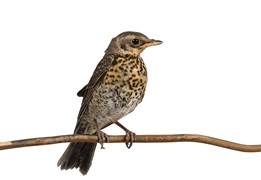
Charlotte Mew
Alexandra Howe reads 'I So Liked Spring' by Charlotte Mew | Issue 19 | 2021


As when, upon a trancèd summer-night,
Those green-robed senators of mighty woods,
Tall oaks, branch-charmèd by the earnest stars,
Dream, and so dream all night without a stir,
Save from one gradual solitary gust
Which comes upon the silence, and dies off,
Hyperion. A Fragment
Keats never finished Hyperion, conceived as an epic poem about the overthrow of the Titan gods in Greek mythology by a new, superior, generation of deities, the Olympians. He began writing it towards the end of 1818, whilst nursing his youngest brother Tom, who was terminally ill with tuberculosis. Tom died in December 1818. Little more than two years later, Keats himself succumbed to the same disease aged only twenty-five.
Hyperion begins in the aftermath of the battle between the Titans and Olympians. It is composed in unrhyming iambic pentameter, a metre common in traditional English poetry and considered one of the poetic rhythms closest to English speech patterns. Each line consists of ten syllables, with one short (or unstressed) syllable followed by one long (or stressed) syllable. It was a metre favoured by William Shakespeare, and also the seventeenth-century poet John Milton, whose epic Paradise Lost described the biblical story of the expulsion of Adam and Eve from the Garden of Eden. Keats clearly drew upon Milton’s earlier work for Hyperion, not just for metre but also for style and syntax.
The lines above are taken from Book I, as the Titans lie, dazed in their defeat, in a shadowy valley. It is difficult not to see, in those last mournful words, Keats’ own pain and helplessness at his brother’s suffering. Keats had trained as a physician and must have known all too acutely what Tom’s symptoms foretold. It is as though human life, frail and transitory as a dream, is carried off in those sibilant lines on a gust of wind.
They also recall Keats’ theory of negative capability, a phrase he used once in a letter, which has intrigued scholars ever since. “Negative Capability” he wrote, “is when a man is capable of being in uncertainties, Mysteries, doubts, without any irritable reaching after fact and reason”. Essential to artistic accomplishment, according to Keats, is a willingness to remain open to doubt and uncertainty, to sensation, rather than logic and science. This extract is pure sensation, pure feeling; as spellbinding in its beauty as the ‘trancèd summer-night’ it describes.
© Norton Rose Fulbright LLP 2025